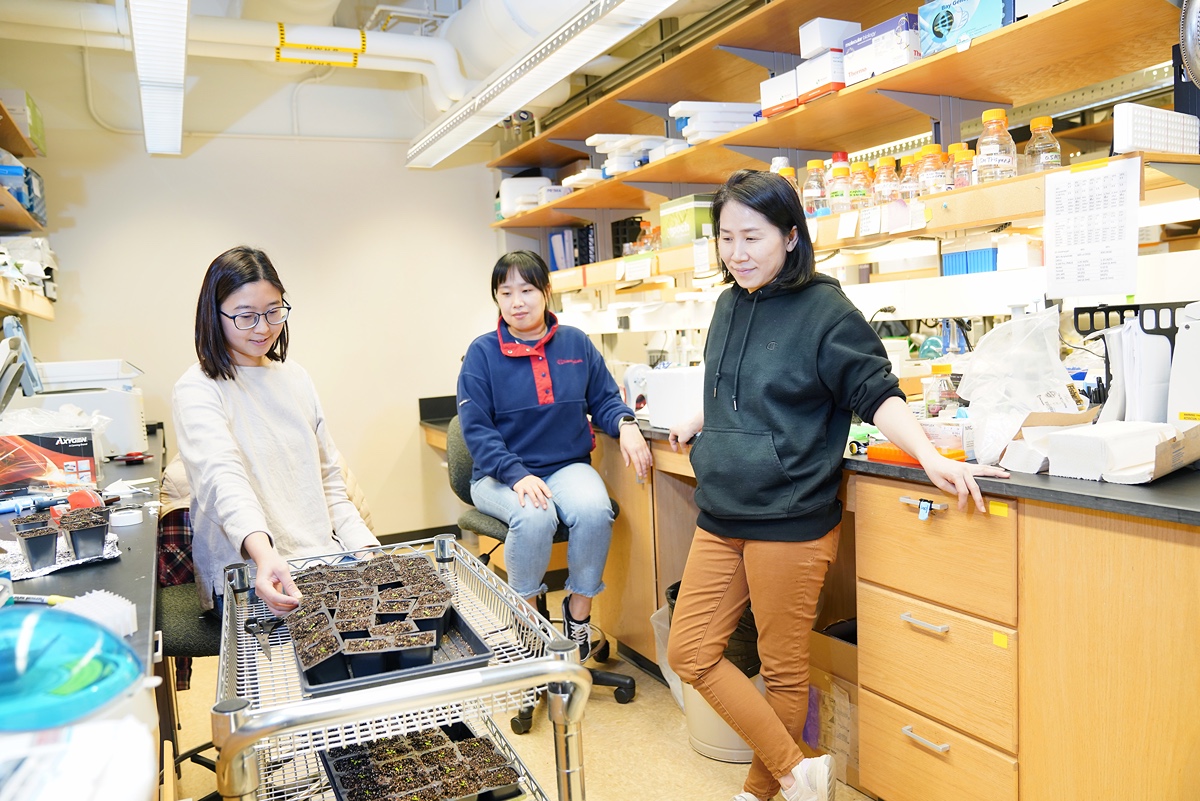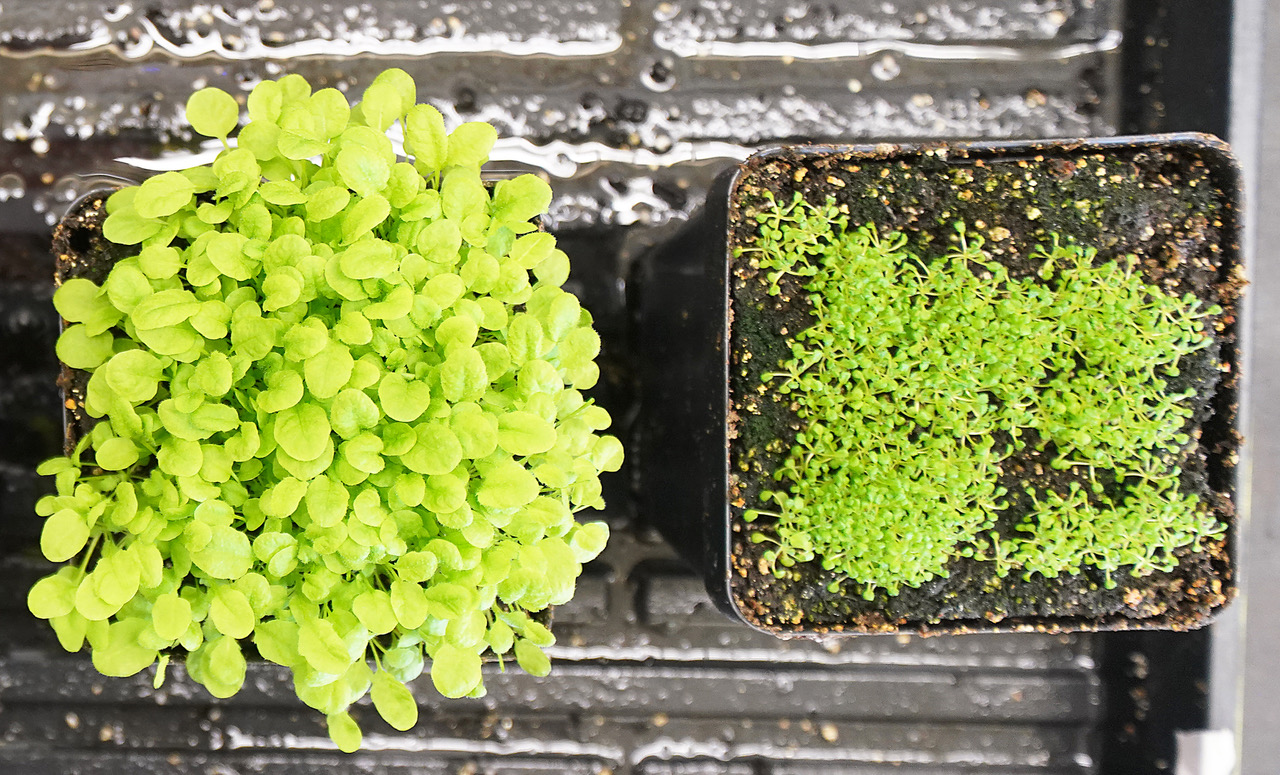Project seeks link between two independent biochemical signaling pathways
The National Science Foundation has awarded a $1.1 million grant to Purdue University’s Gyeong Mee Yoon to research how plants acclimate to environmental stress. Her findings could have implications for food security in an era of climate change.
Yoon, an associate professor of botany and plant pathology, is probing two different biochemical pathways that plants use to improve their response to stresses such as drought, severe heat and cold. She examines the biosynthesis and signaling of the ethylene hormone, which is well-known for its role in regulating fruit ripening.
“Plant hormones are genuinely important for plant growth and development, but also very critical for how plants respond to stress,” she said. So is autophagy, another well-known process that describes how plants and animals begin to eat themselves to replace the loss of vital nutrients during stress conditions such as drought and nutrient deficiency.
Now, it appears there may be a link between the independent cellular signaling pathways of ethylene biosynthesis and autophagy.
“We believe that the signaling and metabolic pathways are interconnected. They influence each other by crosstalk, thus regulating the overall plant’s response to the environment,” Yoon said.
Yoon carries out her work using Arabidopsis, a well-understood and quick-growing plant. If plant scientists can learn the connection between the ethylene and autophagy pathways in Arabidopsis, she noted, they might be able to harness that knowledge to generate high-yield, pathogen-resistant, stress-tolerant plants.
An enzyme that goes by the acronym ACS plays a vital role in making ethylene. The ethylene biosynthetic pathway starts from amino acid methionine, and ACC, a direct precursor of ethylene, is formed before the process culminates in ethylene.
Scientists historically have used ACC as an easy substitute for ethylene in their experiments. ACC dissolves in water while treating ethylene, a gas, can be cumbersome. Recent works from other scientists indicate that ACC may function as an independent signaling molecule separate from ethylene. Interestingly, Yoon’s lab collected preliminary data supporting the independent signaling role of ACC in autophagy.
“Maybe ACC has its own job apart from ethylene when it comes to autophagy. This could help control the right amount of stress responses by managing communication between ethylene and autophagy,” Yoon said.
Her preliminary data also suggest that autophagy may serve as an alternative pathway for controlling ethylene biosynthesis. It may do so by regulating the stability of the ACS enzymes, the cellular process that regulates the amount of ethylene produced in plants.
In addition to research, the new NSF support also will sustain Yoon’s lab outreach to undergraduates, high school students and the public through various programs at Purdue.
Yoon has recruited undergraduates into her lab through the Summer Undergraduate Research Fellowship and the NSF-funded Summer Research Experience for Undergraduates.
She also offers hands-on laboratory research opportunities to high school students through Purdue’s Pre-College Molecular Agriculture Summer Institute. The institute provides Indiana high school students with one-week residential experiences on campus for mentored research in plant science. Since 2015 Yoon has recruited dozens of students through the institute from a broad range of schools to ensure the participants’ economic, ethnic and gender diversity.
Outreach also includes an annual seven-month internship for a local high school student to help research the role of plant hormones in stress responses. A student intern from Lafayette’s Jefferson High School who Yoon mentored in 2019-2020 received the Lafayette Regional Science Fair Gold Medal in Biochemistry, among other awards, for her ethylene-related research project.
The Yoon lab additionally sponsors a public outreach booth on “Hormones in Grocery Stores” at Purdue Spring Fest, hosted by the College of Agriculture. Graduate and undergraduate students staffing the booth lead exercises demonstrating how selective grouping of various fruits and vegetables can reduce ethylene-induced food spoilage.
There are reasons why some fruit is separate from others in the grocery store. Many things regulated by plant hormones can affect our daily lives."
- Gyeong Mee Yoon, an associate professor of botany and plant pathology







